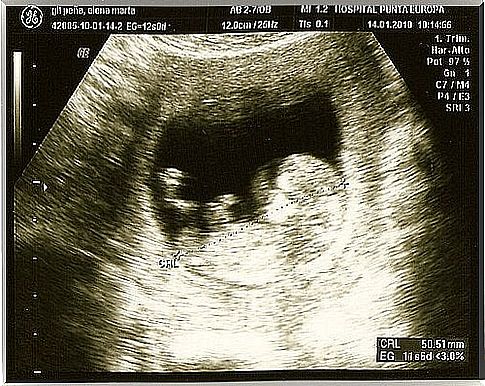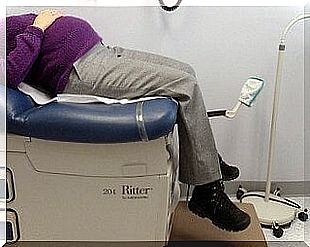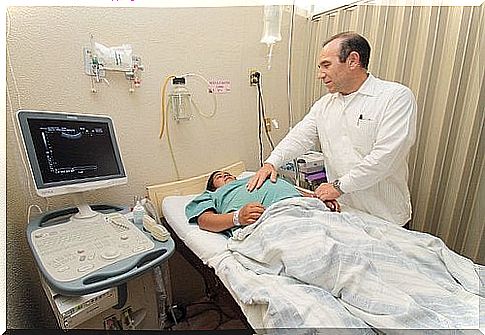Discover Complications In Pregnancy – With Innovative Technology

Nowadays, medical specialists can use innovative technology to discover potential complications in pregnancy at a very early stage . This is how you can prevent or correct them.
A few years ago, many of today’s routine examinations did not exist. One goal of this is so that doctors can discover complications in pregnancy as early as possible .
Complications such as chromosomal anomalies can now be detected quickly using very sophisticated methods. An example of this is the diagnosis of Down syndrome.
It is imperative for expectant mothers to keep their doctor’s appointments regularly. At the same time, of course, everyone has the right to deal with pregnancy in a self-determined manner.
Some mothers feel that they can get satisfactory results even without medical help.
In most cases, no urgent medical intervention is necessary either. However, the development of prenatal diagnostics is well advanced and can give you important information about the health of your child.
Detect complications in pregnancy – through prenatal diagnostics
Prenatal examinations initially allow an assessment to be made of whether potential complications can arise in the child or the mother.
Then, based on the results, a decision is made as to whether subsequent tests are necessary in order to make a clear diagnosis.

Don’t worry when it comes to early detection. This type of test is done regularly with no evidence of problems.
There are suitable preventive examinations for every phase of pregnancy. Some are specifically for the first trimester and others for the second.
In some cases they are particularly helpful, for example with very large amounts of amniotic fluid, with medical conditions such as anemia, with congenital defects or with an existing risk of miscarriage.
Innovative Techniques

As I said earlier, tests for early medical diagnosis are recommended even if the pregnancy is normal. They are helpful in discovering and treating unexpected problems.
There are risks associated with all stages of pregnancy. And some mothers are afraid of certain tests.
Therefore we will briefly describe the procedure for some investigations. But we would also like to emphasize again that everyone decides for themselves whether they want to use these methods or not.
Ultrasonic:
It’s a very common method. The doctor recognizes possible complications at an early stage. At the same time you will get the first picture of your baby.
The doctor also uses ultrasound to determine the baby’s gender. In the case of some abnormalities, such as a heart defect or chromosomal deviations, these can be recognized relatively early with the use of ultrasound.
Sonography or ultrasound examinations of the second stage are carried out if there is a suspicion of possible birth defects.
It is a non-invasive technique performed with an apparatus that creates waves. These waves do not harm the baby, but they do allow one to look inside the womb.
Chorionic villus sampling :
This procedure is recommended if abnormalities were detected during a routine examination during the first trimester. This test is also recommended for high-risk pregnancies.
It consists in examining tissue taken from the placenta.
There are two possible methods of obtaining a sample of the tissue: through the cervix or through the abdominal wall. This is decided individually.
This procedure carries risks that mothers sometimes fear.
Yet it is an important procedure that can help identify any genetic or chromosomal complications in the fetus. This also applies to cystic fibrosis, Down syndrome and Turner syndrome.
Blood tests:
This is a very common investigation, but here, too, science has been able to significantly expand the spectrum of diagnostics through innovations. For example, it can be used to measure certain proteins in the mother’s blood. This also allows conclusions to be drawn about chromosomal abnormalities and possible genetic defects.
The key in this method is a special analysis to detect high or low concentrations of plasma protein A and human chorionic gonadotropin. This is a hormone that the mother produces during pregnancy. These elements are also indicators of certain defects.
Amniocentesis:
Amniocentesis also allows testing for genetic and chromosomal abnormalities. The so-called amniotic fluid test is especially suitable for diagnosing neural tube defects.
Typically, this procedure is used in the first trimester. A very small amount of amniotic fluid is taken from it. When analyzing this liquid, one measures the amount of proteins such as alpha-1 fetoprotein and the enzyme Acetyl colinate.
By measuring these substances, specialists can also discover complications in pregnancy. These include Down syndrome, spina bifida, the malformation of the abdominal cleft (gastroschisis), or inflammation of the brain (encephalitis).









